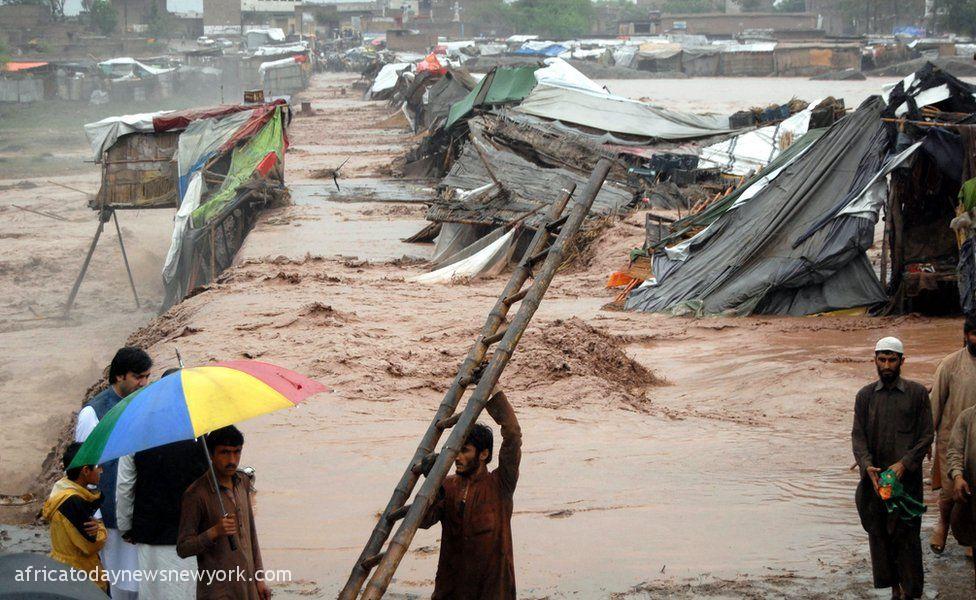It was reported that no fewer than 119 people had died in the previous 24 hours as heavy rains continued to lash parts of the country.
Africa Today News, New York gathered that the annual monsoon is essential for irrigating crops and replenishing lakes and dams across the Indian subcontinent, but each year it also brings a wave of destruction.
Read Also: Seven Killed As Record Rainfall, Flooding Hits Seoul
Officials however, have posited that this year’s monsoon flooding has affected more than 33 million people — one in seven Pakistanis — destroying or badly damaging nearly a million homes.
The NDMA said more than two million acres of cultivated crops have been wiped out, 3,451 kilometers (2,150 miles) of roads destroyed, and 149 bridges washed away.
Africa Today News, New York recalls that sometime last month, thousands of people living near flood-swollen rivers in Pakistan’s north were ordered to evacuate Saturday as the death toll from devastating monsoon rains neared 1,000 with no end in sight.
Many rivers in Khyber Pakhtunkhwa — a picturesque province of rugged mountains and valleys — have burst their banks, demolishing scores of buildings including a 150-room hotel that crumbled into a raging torrent.
‘The house which we built with years of hard work started sinking in front of our eyes,’ said Junaid Khan, 23, the owner of two fish farms in Chrasadda.
‘We sat on the side of the road and watched our dream house sinking.’
The annual monsoon is essential for irrigating crops and replenishing lakes and dams across the Indian subcontinent, but each year it also brings a wave of destruction.
Officials say this year’s monsoon flooding has affected more than 33 million people — one in seven Pakistanis — destroying or badly damaging nearly a million homes.
On Saturday, authorities ordered thousands of residents in threatened areas to evacuate their homes as rivers had still not reached maximum capacity.

